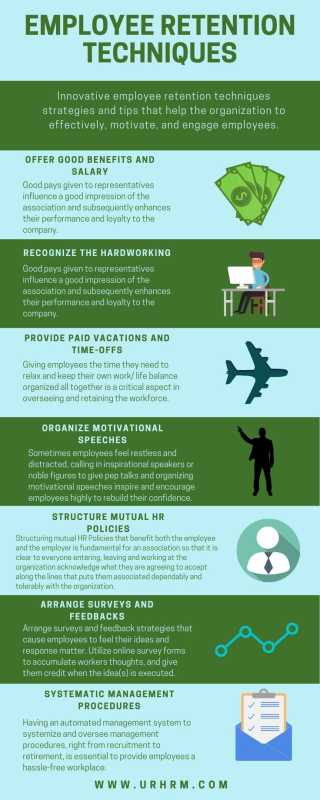Features
Innovative Strategies For Employee Retention

Employee retention is a critical challenge faced by organizations of all sizes and industries. High turnover can result in significant costs and productivity losses. To overcome this, companies need to implement innovative strategies that go beyond traditional methods of employee retention. In this article, we will explore some creative approaches to retaining employees and creating a positive work environment.
Develop a Strong Company Culture
A strong company culture is vital for employee retention. When employees feel connected to the organization’s values and have a sense of belonging, they are more likely to stay. Creating a positive work environment that fosters teamwork, open communication, and opportunities for growth can significantly impact employee satisfaction.
Offer Competitive Compensation and Benefits
While not the only factor, competitive compensation and benefits play a crucial role in employee retention. Conduct regular market research to ensure your company offers salaries and benefits that are in line with industry standards. Consider offering unique benefits like flexible work hours, remote work options, or wellness programs to attract and retain top talent.
Provide Opportunities for Growth and Development
Employees value opportunities for growth and development in their careers. Invest in training programs, mentorship initiatives, and ongoing learning opportunities to help employees enhance their skills and knowledge. Encouraging professional growth not only increases retention but also strengthens the overall capabilities of your workforce.
Promote Work-Life Balance
Work-life balance is becoming increasingly important for employees. Companies that prioritize this aspect of employee well-being are more likely to retain their talents. Implement policies that allow for flexible work schedules, remote work options, and time off to recharge. By supporting work-life balance, you demonstrate a commitment to your employees’ overall happiness and satisfaction.
Recognize and Reward Employee Performance
Recognition and rewards are powerful motivators for employees. Implement a comprehensive employee recognition program that acknowledges and rewards outstanding performance. This can include monetary incentives, public recognition, employee-of-the-month programs, or performance-based bonuses. Celebrating achievements helps employees feel valued and appreciated, increasing their loyalty to the organization.
Promote Workforce Diversity and Inclusion
A diverse and inclusive workforce contributes to a positive work environment and enhances employee satisfaction. Actively recruit and promote employees from different backgrounds and create a culture that values diversity. Implement programs and initiatives that foster inclusion, such as diversity training, employee resource groups, and mentorship programs. By embracing diversity, you create an environment where all employees feel respected and valued.
Create Opportunities for Employee Feedback
Regularly seeking feedback from employees allows you to address their concerns and make improvements. Establish an open and transparent communication channel where employees can voice their opinions, suggestions, and grievances. Actively listen to their feedback and implement necessary changes. Employees who feel heard and see their feedback being acted upon are more likely to remain loyal to the company.
Encourage Workforce Collaboration and Empowerment
Encouraging collaboration and empowering employees to take ownership of their work fosters engagement and loyalty. Create a collaborative work environment where ideas are welcomed, and employees have the autonomy to make decisions and contribute meaningfully. Recognize and value their contributions to empower them to excel in their roles.
Provide Workforce Flexibility
Flexibility in the workplace is highly valued by employees. Offer flexible work schedules, remote work options, and the ability to balance personal and professional commitments. This flexibility enables employees to achieve a better work-life balance and reduces stress, ultimately leading to higher overall job satisfaction and retention rates.
Invest in Employee Well-being
Employees who are physically and mentally healthy are more likely to stay with the company. Consider implementing wellness programs that prioritize employee well-being. This can include gym memberships, mental health resources, stress management initiatives, and healthy snack options. Demonstrating a commitment to employee well-being enhances their loyalty and reduces turnover.
By implementing these innovative strategies, organizations can improve employee retention rates and create a positive work environment. Remember, every company is unique, so it’s essential to tailor these approaches to align with your organization’s values, goals, and workforce.










